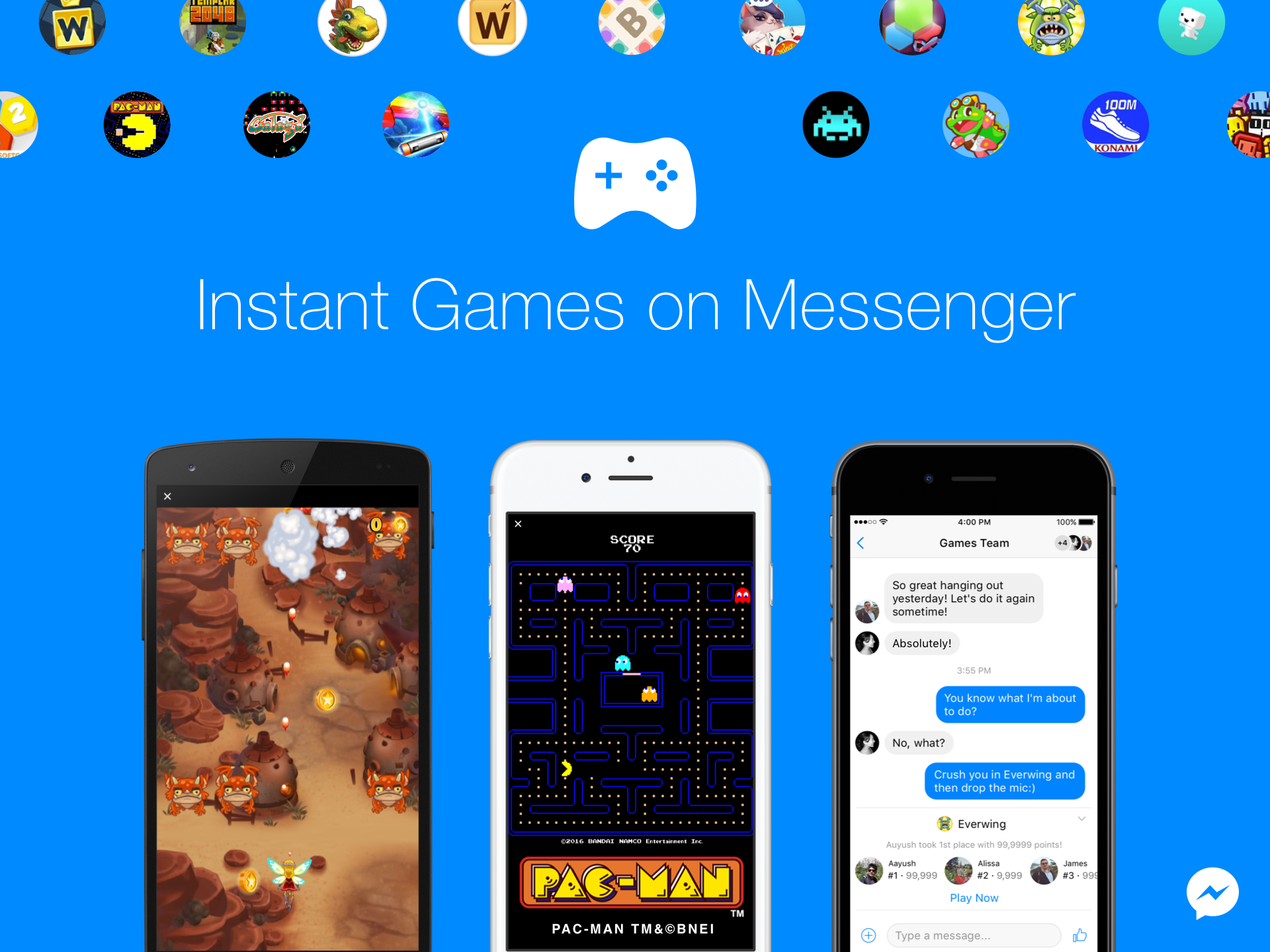Facebook Brings 'Instant Games' To News Feed And Messenger
Facebook announced that it's testing Instant Games, an HTML5 game platform built atop its social network, in its News Feed and Messenger app.
Instant Games is essentially a gaming hub where people can find new games, share them with their friends, and play together without having to worry about what device they use. People aren't constrained to a particular console, like they are with PlayStation Network or Xbox Live, and they also don't have to remember to download a new game the next time they're connected to a Wi-Fi network. Facebook is basically making it easier to play games.
This new hub will launch with 17 titles. It's clear that Facebook is targeting some of its more nostalgic users: Instant Games is debuting with Pac-Man, Galaga, and Space Invaders. Playing those games used to require shoving quarters into arcade cabinets; now anybody can play them by tapping a link on their smartphone. (Some of the other titles available at launch include Hex, Arkanoid, and Words With Friends: Frenzy, among a handful of others.)
Here's how Facebook pitches Instant Games to developers in its blog post:
Instant Games, launching in closed beta, opens up a unique opportunity for game developers to lower the friction for people to discover and instantly enjoy playing games without having to install new apps. Using only one build that will run in web view, developers can easily deploy their Instant Games across multiple platforms to reach the 1.79 billion people on Facebook, as well as 1 billion people on Messenger. Facebook News Feed posts also include the 'Instant Play' call-to-action to help drive distribution and discovery of new games.
The main draw here seems to be Messenger. Facebook said in a fact sheet that 1.2 billion games of basketball have been played in the messaging app. Another 250 million have played soccer. That was when developers had to release their games as apps that were treated like the stickers, photo filters, and other utilities available for Messenger. Now, games have reached the same status as sending a photo, video, or message to other Facebook users.
Messenger is also a key factor of many Instant Games features. Leaderboards are restricted to people with whom you've interacted on Messenger instead of being shared with the whole world, for example, and group threads can be set up to discuss a game without cluttering up a conversation. Facebook very well could have planned to make Instant Games exclusive to Messenger before deciding to throw a bone to people using the main site.
Get Tom's Hardware's best news and in-depth reviews, straight to your inbox.
One strange aspect of Instant Games is that it so closely follows the debut of Facebook Gameroom, another initiative that actually encourages people to play games outside of the social network. Instant Games is all about using HTML5 to make titles available on all platforms. Facebook Gameroom was created to provide a faster alternative to HTML5 by making it easy to distribute games made with Unity, which helped develop the project.
Facebook Gameroom debuted in early November. This means that it took only a month for Facebook to simultaneously ask developers to leave its platform behind--Facebook Gameroom uses the social network as a distribution platform, not a place for leaderboards or messaging--and to embrace its platform. (Ditto for HTML5.) It's not clear how, or even if, the company plans to juggle both of these efforts as it tries to attract more game devs.
Instant Games is available now in 30 countries. Facebook said that the service is currently in a closed beta, but that appears to refer specifically to developers. The company is likely working to ensure Instant Games isn't immediately filled with bargain-bin games from developers who are more interested in turning a profit or collecting information about Facebook users making a fun game. Developers can apply to be a part of Instant Games at Facebook's website.

Nathaniel Mott is a freelance news and features writer for Tom's Hardware US, covering breaking news, security, and the silliest aspects of the tech industry.
